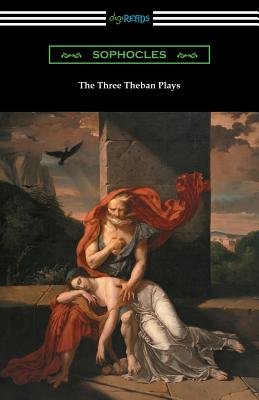







Lysistrata and Other Plays centers a disgruntled woman whose attempt to end a war takes the battle from an open field to the soldier's bedroom. Wives from both camps deny their husbands basic affection in an effort to quell the violence.
Set during the Peloponnesian War, the women of Greece, led by Lysistrata, create a plan to stifle the conflict between Athens and Sparta. Together, they agree to stage a sex strike, refusing to sleep with their husbands until a resolution is met. The strategy has an undeniable effect on politicians, generals and soldiers eager for a return to normalcy. It dramatically changes the focus of the warring parties, signifying the potential for peace.
Lysistrata and Other Plays confronts gender norms and empowers those who are often marginalized. It's a common theme in Aristophanes' work that is also found in The Assemblywomen and Thesmophoriazusae. This political satire illustrates how fundamental needs always take precedence over superficial wants.
With an eye-catching new cover, and professionally typeset manuscript, this edition of Lysistrata and Other Plays is both modern and readable.









In An Oresteia, the classicist Anne Carson combines three different versions of the tragedy of the house of Atreus -- A iskhylos' Agamemnon, Sophokles' Elektra and Euripides' Orestes. After the murder of her daughter Iphigeneia by her husband, Agamemnon, Klytaimestra exacts a mother's revenge, murdering Agamemnon and his mistress, Kassandra. Displeased with Klytaimestra's actions, Apollo calls on her son, Orestes, to avenge his father's death with the help of his sister Elektra. In the end, Orestes is driven mad by the Furies for his bloody betrayal of family. Condemned to death by the people of Argos, he and Elektra must justify their actions -- or flout society, justice and the gods.
Carson's translation combines contemporary language with the traditional structures and rhetoric of Greek tragedy, opening up this ancient tale of vengeance to a modern audience and revealing the essential wit and morbidity of the original plays.

The gods never move faster than when punishing men with the consequences of their own actions.
Desperate to gain control over a city ravaged by civil war, Creon refuses to bury the body of Antigone's rebellious brother. Outraged, she defies his edict. Creon condemns the young woman, his niece, to be buried alive. The people daren't object but the prophet Teiresias warns that this tyranny will anger the gods: the rotting corpse is polluting the city. Creon hesitates and his fate is sealed. Sophocles' great tragic play dramatises the clash between the family and the city and, with high poetry and deep tragedy, presents an irreconcilable but equally balanced conflict. Sophoclean heroine Antigone has become a cultural archetype, the symbol of personal integrity and an icon of political freedom, whilst her coprotagonist Creon can be interpreted as either a civic saviour or a ruthless tyrant. This translation by Don Taylor, accurate yet poetic, was made for a BBC TV production of the Theban Plays in 1986, which he directed.

